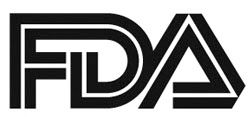Avelumab Granted FDA Breakthrough Therapy Designation in Metastatic Urothelial Cancer
A Biologics License Application for avelumab, a PD-L1 inhibitor, was submitted to the FDA for consideration as first-line treatment of patients with locally advanced or metastatic urothelial cancer and the agent was granted Breakthrough Therapy Designation, announced Merck KGaA, in a press release.<br />

A Biologics License Application for avelumab (Bavencio), a PD-L1 inhibitor, has been granted a Breakthrough Therapy designation from the FDA for the first-line treatment of patients with locally advanced or metastatic urothelial cancer, announced Merck KGaA, in a press release.1
Results from the phase III JAVELIN Bladder 100 trial served as rationale for this regulatory action. In the study, first-line treatment with avelumab extended the survival over best supportive care (BSC), meeting the study’s primary end point of overall survival (OS). The survival benefit was statically significant and was consistent in the overall study population and in patients with PD-L1-positive tumors.
“For the past 30 years, chemotherapy has been the first-line standard of care for patients with advanced urothelial carcinoma. While this is an effective short-term option for many patients, most will ultimately experience disease progression, underscoring a need for additional treatment options,” said Petros Grivas, MD, PhD, a principal investigator in the JAVELIN Bladder 100 trial. “Based on the positive overall survival results from JAVELIN Bladder 100, I believe avelumab has the potential to be practice-changing.”
The multicenter, multinational, randomized, open-label, parallel-arm study aims to enroll 700 participants whose disease had not progressed after platinum-based induction chemotherapy as per RECIST v1.1. These patients will be randomized to receive avelumab in combination with plus BSC or BSC alone.
In addition to evaluating OS, the secondary end points of JAVELIN Bladder 100 include progression-free survival (PFS), anti-tumor activity, safety, pharmacokinetics, immunogenicity, predictive biomarkers, and patient-reported outcomes in the co-primary groups. Thus far, the safety profile of avelumab observed in this study have been consistent with is already known about the drug.
To be eligible for the study, patients are required to have a histologically confirmed locally advanced or metastatic urothelial cancer, measurable disease, and stage IV disease at the start of first-line chemotherapy. The prior chemotherapy must have been between 4 and 6 cycles long. Patients cannot have progressive disease.
Avelumab was granted FDA approval for the treatment of patients with locally advanced or metastatic urothelial carcinoma in 2017 based on data from the open-label, single-arm, multicenter JAVELIN Solid Tumor Trail (NCT01772004). Most recently, PFS data from the AVELIN Solid Tumor Trail were presented at the 2020 Genitourinary Cancers Symposium (GU 2020). The results showed similar PFS between avelumab and similar agents, including, atezolizumab (Tecentriq), nivolumab (Opdivo), durvalumab (Imfinzi), and pembrolizumab (Keytruda), as well as chemotherapy.2
Updated safety and efficacy data were presented at GU 2019 the prior year. In all evaluable patients who were followed for a median of 2.7 years and received treatment for a median duration of 12.0 weeks (IQR, 6.0-32.1), the confirmed objective response rate (ORR) was 16.5% (95% CI: 12.1%-21.8%). Of the patients who responded to treatment, complete responses were observed in 4.1%. The median duration of response (DOR) was 0.5 months (95% CI: 9.7-not estimable). Avelumab led to a 1.6-month median PFS (95% CI: 1.4-2.7 months) and a 7.0-month median OS (95% CI: 5.9-8.5 months).3
Overall, 71.1% of patients experienced any grade treatment-related adverse events (TRAEs). The most common any grade TRAEs were infusion-related reactions (24.1%), fatigue (18.1%), and rash (18.1%). Grade 3 or higher TRAEs of any grade were observed in 11.8% of patients overall, with the most common being fatigue (1.6%), elevated lipase (1.6%), and pneumonitis (1.2%). TRAEs led to treatment discontinuation in 4.0% of patients (n = 10). One patient succumbed to pneumonitis.
Patients in the JAVELIN Solid Tumor study received avelumab 10 mg/kg every 2 weeks. Every 6 weeks, tumors were assessed for response per RECISIT v1.1 The key end points of the study are ORR, DOR, PFS, and OS. The study was completed in late 2019.
The JAVELIN Bladder 100 study is ongoing with an estimated completion date of June 3, 2021.
References
- US FDA Breakthrough Therapy Designation and submission of application for Bavencio for first-line maintenance treatment of locally advanced or metastatic urothelial carcinoma [news release]. Darmstadt, Germany: Merck KGaA; April 9, 2020. https://bit.ly/3eiJk2e. Accessed April 9, 2020.
- Kapetanakis V, Prawitz T, Schlichting M, et al. Comparing progression-free survival (PFS) in second-line (2L) urothelial carcinoma (UC) treatments from single-arm trials: Importance of using appropriate methods.J Clin Oncol. 38, 2020 (suppl 6; abstr 573).
- Apolo B, Ellerton JA, Infante JR, et al. Avelumab treatment for metastatic urothelial carcinoma in the phase Ib JAVELIN Solid Tumor Study: Updated safety and efficacy analysis with ≥ two years of follow-up.J Clin Oncol.37, 2019 (suppl 7S; abstr 425).